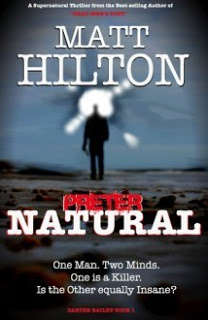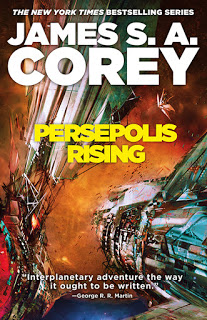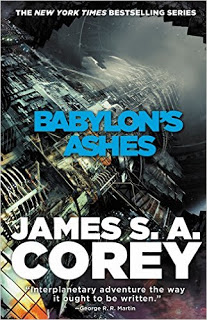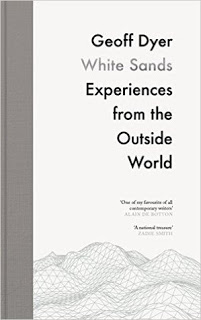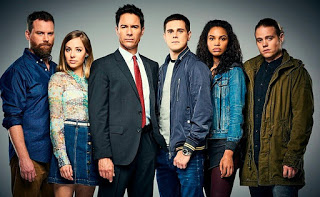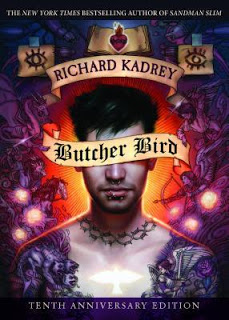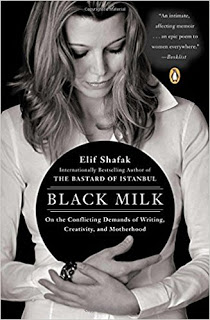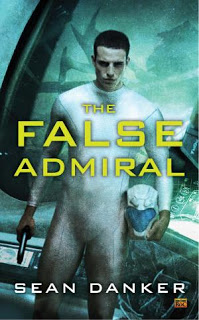The Atrocity Archives (Laundry Files #1), by Charles Stross
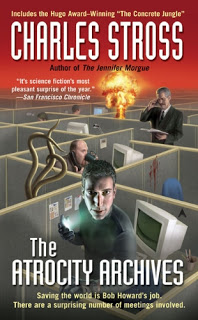 The Atrocity Archives tells the story of a technical computer geek enrolled by force in the British governmental organization that keeps us safe from supernatural threats. By Charles Stross' own admision, as a mix of Len Deighton and H.P.Lovecraft by way of Neil Stephenson (with a bit of Le Carré and Flemming thrown in for good measure), the book seeks to bridge the emotional catharsis of facing one's fears (the realm of the horror) with the desire to reveal the truth of the thriller. Bundled with it, the short story The Concrete Jungle, continues the saga of our protagonist.
The Atrocity Archives tells the story of a technical computer geek enrolled by force in the British governmental organization that keeps us safe from supernatural threats. By Charles Stross' own admision, as a mix of Len Deighton and H.P.Lovecraft by way of Neil Stephenson (with a bit of Le Carré and Flemming thrown in for good measure), the book seeks to bridge the emotional catharsis of facing one's fears (the realm of the horror) with the desire to reveal the truth of the thriller. Bundled with it, the short story The Concrete Jungle, continues the saga of our protagonist.I liked the book. A master of technobabble and fast paced intelligent action, Stross first came to my attention with the wonderful Accelerando, which I will never stop recommending. In the Laundry Files series, he tackles with equal humor horrors that could suck the universe dry of energy and life and things like bureaucracy (less efficient versions of the same thing) in government agencies. The pace is alert, the writing good and easy to read, the characters sympathetic if a little too shallow, funny, punny and, once I got into it, this book was almost impossible to put down.
I don't know if I will continue with the rest of the series, but as science fantasy goes, The Atrocity Archives is a pretty good book.

